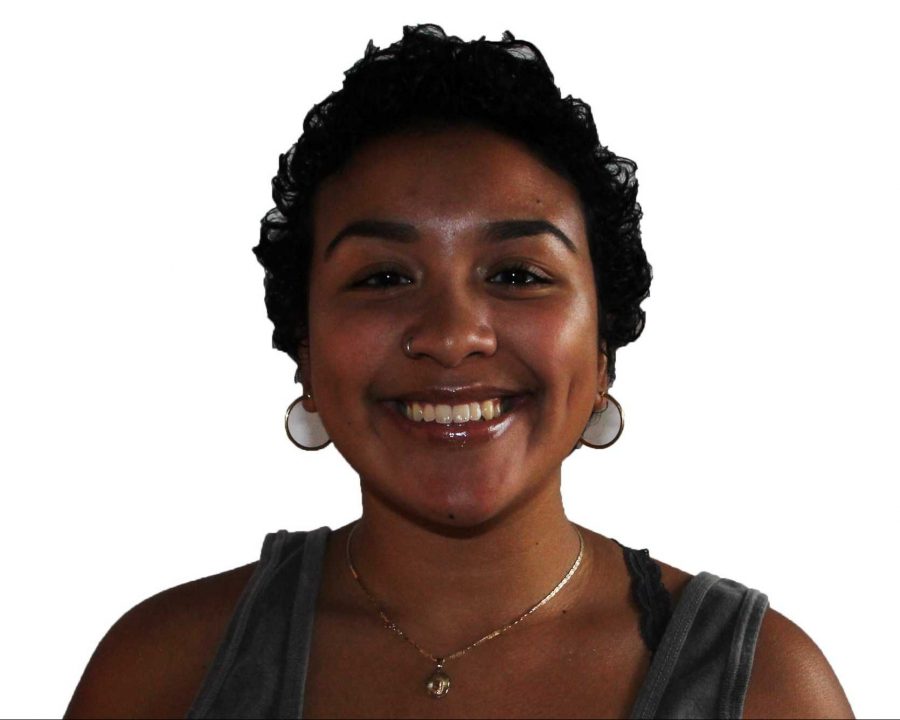Is the University as diverse as it claims to be?
Oct 7, 2016
The University is dedicated to ensuring that the aspects of all students’ college experiences are as enjoyable, unique, and safe as possible. One thing that the University likes to boast about is that the campus is extremely diverse and inclusive. And it definitely has much to boast about.
On the Inclusive Illinois website, one can access the University’s annual Impact Reports to see any new societies, events, programs, and more that are associated with the school’s strides to achieving inclusivity. While these strides are important to make the campus more inclusive, there is still more that needs to be done at a social level.
Many students think that the University is a diverse space. For instance, freshman Kevin Konrath feels that the University is definitely more diverse in comparison to his high school which he described as being, “54 percent Mexican, 44 percent white.” He then went on to correct himself only after I asked him to clarify what he meant by “Mexican” saying that he meant to say Hispanic.
But what would have happened, if anything, had I not attempted to understand Konrath’s statement? If I had just let the comment go, would he have been assured that it is appropriate to describe all Latinx people as “Mexican” in the future? These incidents of ignorance is what the University strives, yet struggles, to get rid of.
In one of my classes, we were assigned to complete an online workshop entitled “Diversity.edu” as a part of the class’ Diversity Week. According to the Diversity.edu website, the workshop was created in collaboration with various scholars across the nation.
Get The Daily Illini in your inbox!
Its goal is to create a more inclusive campus through various simulations, quizzes and mini-lessons. While the actual workshop was inclusive and accurate, the results of having completed the workshop appear to be less than ideal on a social level.
Ideally, I would prefer if someone did not butcher the meaning of the Black Lives Matter movement in class. Ideally, it’d be great if students wouldn’t proudly suggest that reverse racism is real. Yet despite these recurring incidents of ignorance, many students still perceive the University as being extremely inclusive and diverse.
In fact, when my class of about 25 students contributed to a live poll concerning their personal interests and beliefs, about 30 percent of the class described themselves as having conservative values while another 30 percent described themselves as being moderate. The rest of the categories included far left, liberal and far right.
Despite these two categories tying for 1st place in the poll, Konrath insisted that because there seems to be a rise in liberal values nationally, the information collected in class isn’t representative of campus. He says, “this is a very liberal campus.”
While it is important to at least be cognizant of the myriad of students’ diverse backgrounds, it is even more important to promote behavior that keeps everybody safe and fundamentally respected. It seems that the point of Diversity Week, though, was to tell students that because everybody on campus is different, everyone’s opinions should be respected even if they are toxic to achieving a healthy campus culture.
But how fun, safe and diverse can campus actually be if those ideas rooted in bigotry and ignorance are respected by the University as diverse opinions?
Because little is being done to remedy ignorance in the classroom, students who are a part of marginalized groups don’t feel entirely included. If a student makes a bigoted statement in class, the educator should feel compelled to lead them toward what is appropriate.
This, however, brings up two questions: how can we achieve inclusion on campus if we don’t respect everybody’s opinion and what if the educator is ignorant as well?
Defining what’s respectful of other’s beliefs and opinions is understandably blurry to most. In terms of promoting inclusion and equality, though, respecting others’ opinions means far more than simply ignoring someone’s ignorance in order to protect their feelings.
The only way for people to become more comfortable with others who aren’t like them is through interaction — not an online workshop that one can easily glide through without grasping the information.
Discussing opinions that promote non-inclusive behavior should be seen as a respectable thing, as something that sparks meaningful and important conversations—not as disrespecting someone’s beliefs. Many students probably think of themselves as open-minded only because they have not had their thinking challenged.
Challenging shouldn’t be seen as an attempt at indoctrination but rather as an attempt at making others more inclusive thinkers. By simply ignoring bigoted comments, you not only let them live on, but flourish.
But who should be facilitating these discussions? While all professors and the like aren’t getting paid to teach us how to use inclusive language, they should certainly feel some sense of responsibility in correcting toxic behavior. However, instructors don’t always have the right answers about what it means to be inclusive.
It’d be best if these discussions were led by individuals who have actually studied topics concerning these issues. A facilitator whose only experience is comprised of some required, lukewarm diversity training will probably use that as a baseline to continue a mediocre cycle of misinformation.
It’s a shame that it’s so evident that the University needs more work in the inclusion department that students take to Instagram to release their frustration with how ignorance prospers on campus.
But someone who is actually qualified to facilitate these discussions—preferably more often than just for a week—could yield the results necessary to make some significant social change.
Tatiana is a freshman in Media.






